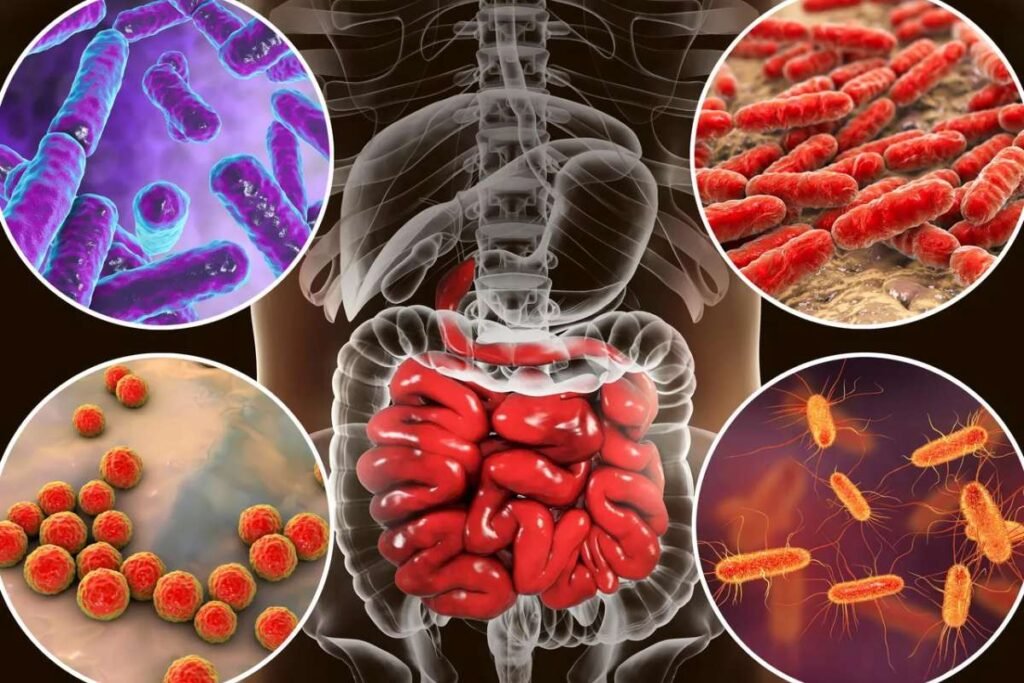In a significant breakthrough, scientists from Harvard Medical School and the Broad Institute have uncovered a direct molecular link between gut bacteria, environmental contaminants, and depression. Their study focused on Morganella morganii, a common gut bacterium already associated with conditions like depression, type 2 diabetes, and inflammatory bowel disease. The researchers discovered that when this microbe incorporates a chemical contaminant, diethanolamine (DEA), into its lipid molecules, it can trigger a powerful immune response tied to mental health issues.
The team identified unusual lipids created by M. morganii that mimic natural molecules in the body but are chemically altered due to DEA, a compound commonly found in industrial and personal care products. These modified lipids, known as MmDEACLs, activated immune receptors TLR1 and TLR2, prompting the release of interleukin-6 (IL-6), a protein heavily linked to inflammation and depression. Senior researcher Jon Clardy emphasized that the study takes a crucial step toward understanding the “molecular mechanisms behind the gut-brain link” in depression.
Tiny Chemical Changes, Big Immune Responses
The study’s most striking revelation was how minor molecular alterations caused by environmental contaminants can spark significant immune reactions. Only the lipid versions containing DEA provoked a strong IL-6 response, while natural variants did not. The findings suggest that the immune system can detect extremely subtle chemical differences in bacterial products, such as the shape or bond structure of fatty acid chains, and react accordingly.
This research supports the idea that depression might not be solely rooted in brain chemistry but could also have immune and inflammatory origins, especially in cases linked to chronic gut inflammation. Elevated IL-6 levels have long been found in patients with major depressive disorder, often affecting brain regions responsible for mood regulation. The study proposes that long-term exposure to pollutants like DEA, processed by gut bacteria, could act as a hidden biological trigger for depressive episodes.
“This was completely unexpected,” Clardy noted, referring to how DEA, a widespread environmental pollutant, was metabolized into an immune-stimulating agent. The finding deepens the understanding of the gut-immune-brain axis and highlights how gut microbes may serve as gatekeepers between external chemical exposures and internal health outcomes.
Environmental Exposure’s Surprising Role in Mental Health
The presence of DEA in everyday products means that most people are exposed to it regularly, adding urgency to the study’s findings. When gut bacteria convert this pollutant into immune-activating molecules, it introduces a new layer of complexity in understanding how environmental factors influence disease risk, particularly for mental health disorders like depression.
While more research is needed to determine how frequently this mechanism occurs in humans, the study opens the door to new diagnostic markers and treatment approaches. Blocking this specific inflammation pathway might benefit individuals whose depression is driven by gut-based immune triggers rather than traditional neurochemical imbalances.
The researchers now plan to investigate whether other gut microbes perform similar chemical transformations and how widespread this mechanism is across the population. As Clardy puts it, “Now that we know what we’re looking for, we can begin to uncover how many other microbes might influence health in unexpected ways.” This discovery not only reshapes our understanding of depression but also underlines the profound health effects of everyday environmental pollutants.









